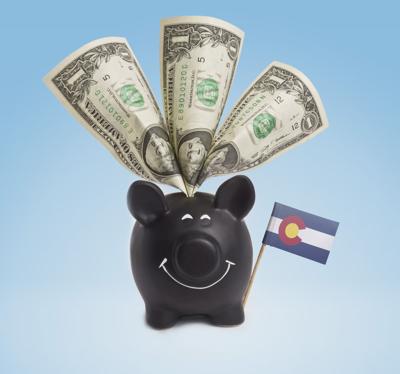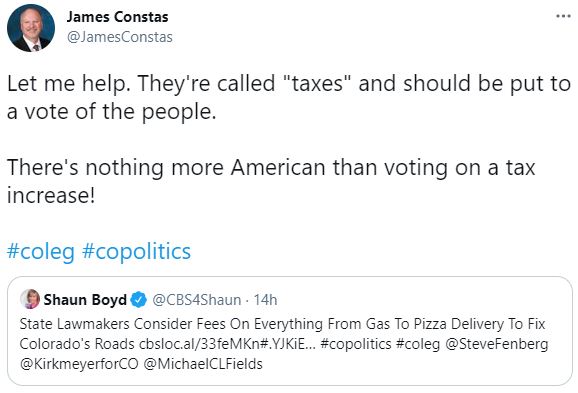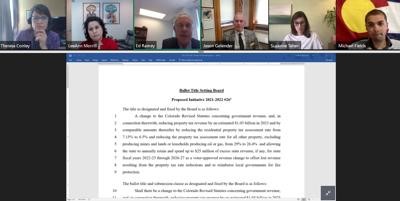House Bill 1321 comes as progressives have all but given up on doing away with TABOR, the 1992 constitutional amendment that has served as a third rail in Colorado politics ever since its passage

One of the most effective parts of the Taxpayer’s Bill of Rights when it comes to stopping tax-raising ballot questions in Colorado is a requirement that voters be informed, IN CAPITAL LETTERS, about the eye-popping sum they are deciding whether to allow the government to collect.
“SHALL STATE TAXES BE INCREASED $766,700,000 ANNUALLY FOR A TWENTY-YEAR PERIOD?” Proposition 110, which was focused on raising money for transportation projects, scream-asked voters in 2018. (It failed.)
Now, Democrats are trying to adapt that potent TABOR transparency tool for their own purposes.
House Bill 1321, a measure introduced at the Capitol this week, would require voters to be informed of which programs would be affected by ballot questions decreasing taxes.
The legislation would require the following language be attached to tax-reducing ballot measures: “Shall funding available for state services that include, but are not limited to, (the three largest areas of program expenditures) be impacted by a reduction of (projected dollar figure of revenue reduction to the state in the first full fiscal year that the measure reduces revenue) in tax revenue…?”
The bill would also mandate that ballots containing tax questions highlight how many people in which tax brackets would be most affected by tax hikes or decreases, and require that ballot titles for tax increases state that the aim is to “increase or improve levels of public services” and then list those services.
“It’s an attempt to provide more information and level the playing field,” said Carol Hedges, who leads the liberal-leaning Colorado Fiscal Institute, which supports the measure. “Currently, the all-caps language focuses people’s attention only on the size of state government. We know that the size of state government is not the only factor people should be considering.”
Scott Wasserman, who leads the Bell Policy Center, a liberal advocacy organization, called the measure “a great idea” that seeks to offset what he sees as the manipulative aspects of TABOR.
To continue reading this story, please click (HERE):









